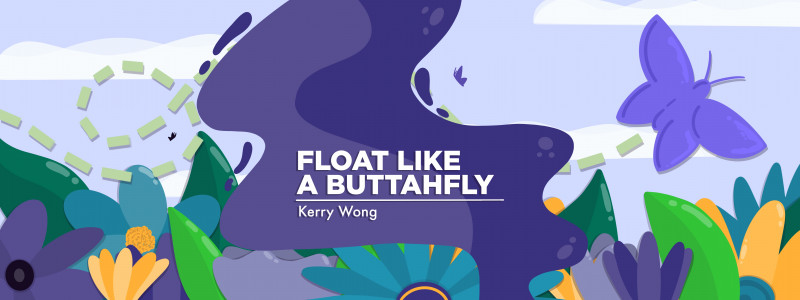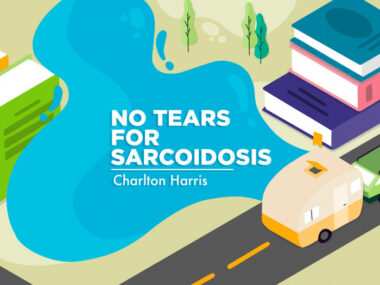When patients and caregivers swap roles, empathy usually follows
In the past two months, both my mother and my husband underwent surgery
Written by |

Over the past two decades, I’ve gone from being an active, fit young woman to an overweight, disabled old lady dealing with a range of chronic illnesses. This transformation hasn’t been a straightforward journey; it has been filled with obstacles, detours, and dead ends.
Some days, my sarcoidosis symptoms are manageable, allowing me to go about my daily life, while other days have left me needing assistance just to stand, dress, and walk. Throughout this journey, my husband, Michael, and my mom, Iris, have consistently been by my side, eager to help in any way they can.
However, in the past two months, both my mother and my husband underwent surgery, which shifted the dynamic to me caring for them. While our situations are vastly different, experiencing this “Freaky Friday” role reversal left a significant impact on me.
Like the plot of that movie, the concept of characters switching bodies and having to live each other’s lives for a while is a common trope in entertainment. Through this experience, characters often learn more about each other’s struggles and sacrifices, ultimately growing closer to one another when they return to their own lives.
We all learned some lessons
In my mother’s case, she had been suffering from osteoarthritis and was ready for knee replacement surgery. We were able to plan and prepare for this; I took her to the surgeon who performed my hip replacement, which made the situation feel more familiar. We even laughed as we “swapped seats” in the exam room.
Michael’s situation, however, took us completely by surprise. A sudden onset of symptoms prompted a panicked visit to our local urgent care clinic, which led to a frantic trip to the emergency room after a blood test. This ultimately resulted in surgery to remove his gallbladder and nearly a weeklong stay in the hospital due to sepsis. He’s OK now, thank goodness.
Years ago, I spoke with a friend who also has sarcoidosis. Her partner had taken care of her, but when he developed cancer, he needed her support. I’ve always feared that if Michael or my mom got sick, I wouldn’t be able to care for them while struggling to take care of myself. How could I take care of them if I couldn’t even take care of myself? My friend and I concluded that the answer to this fear is simple, but a non-answer: “You just do.”
When my mom needed me most, I “just did” — though Michael and his mom also provided crucial support. The most difficult moments for Mom came after her surgery, when she returned home and began to recover from anesthesia. I stayed by her side that night, quickly attending to her whenever she whimpered or moaned in pain. I felt her pain deeply, but knew I couldn’t take it away.
I helped my mom get in and out of bed, kept her supplied with fresh ice packs, and brought her medication when it was time. I held her when she needed comfort, and gave her space when she desired it. “All I can say is, ‘It sucks,’ but I understand, and I’m here,” I told her. That made her realize how much it means to me when she supports me in similar ways.
My mother had a lesson for me, too, but she didn’t wait for me to learn it on my own. She told me clearly and directly that this experience should help me understand that I am not a burden. When she and Michael want to help me, it comes from a place of pure love, not reluctance or obligation.
I also asked Michael about his experience, curious if he had an epiphany similar to my mom’s. I shared my own feelings of fear, worry, and helplessness as we awaited answers, wanting to do everything for him yet feeling like it was never enough. His response was short and (not so) sweet: “Welcome to my world.”
He gained insight into the uncertainty I faced for years without a diagnosis. What helped him, he said, was understanding that his situation was an isolated incident, unlike my chronic sarcoidosis. Unsurprisingly, he was more worried about being able to take care of me while he was recovering and felt guilty about my running back and forth to the hospital every day when I needed to rest. It seems he could benefit from my mother’s lesson, too.
It seems fitting that our national day of gratitude — Thanksgiving — happens during National Family Caregivers Month. I am reminded of all the blessings in my life, and the caregivers who support us are truly the greatest of them all. So, to Michael, Mom, and all the wonderful caregivers out there, thank you. I am deeply grateful to you.
Happy Thanksgiving!
Note: Sarcoidosis News is strictly a news and information website about the disease. It does not provide medical advice, diagnosis, or treatment. This content is not intended to be a substitute for professional medical advice, diagnosis, or treatment. Always seek the advice of your physician or other qualified health provider with any questions you may have regarding a medical condition. Never disregard professional medical advice or delay in seeking it because of something you have read on this website. The opinions expressed in this column are not those of Sarcoidosis News or its parent company, Bionews, and are intended to spark discussion about issues pertaining to sarcoidosis.






Leave a comment
Fill in the required fields to post. Your email address will not be published.